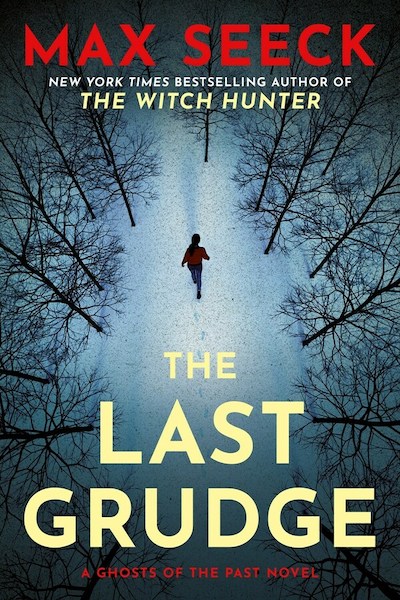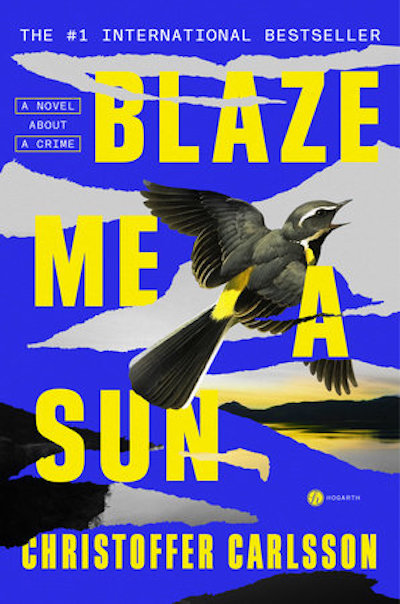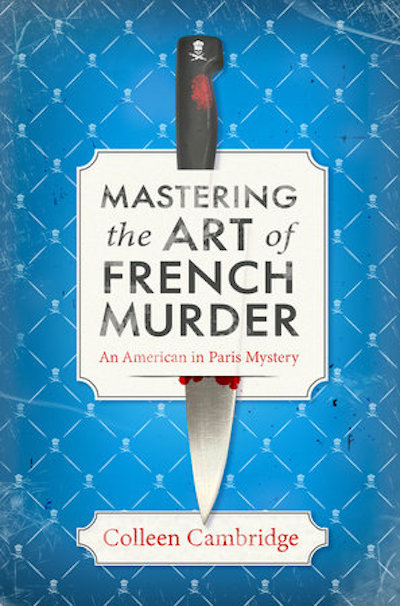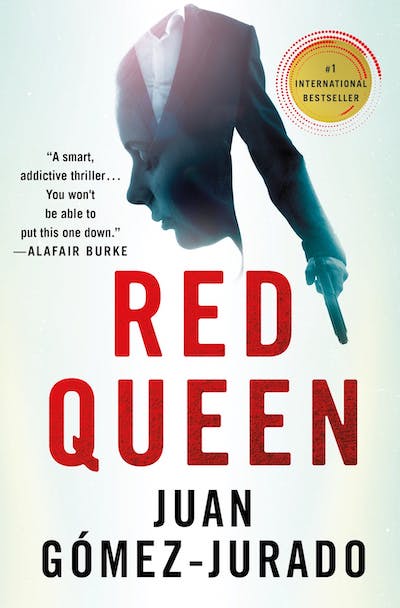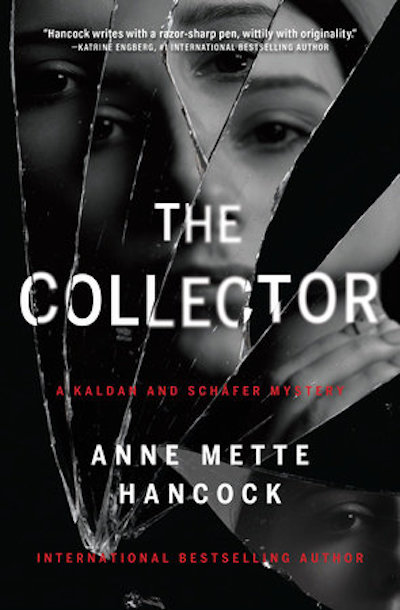A classic police procedural that does a miraculous job of balancing the investigation on the one hand and the complex personal lives of the detectives on the other. One of Helsinki’s most successful business leaders is murdered in his home, by a kitchen knife to his heart. He was on his way to a dinner celebrating his company’s fiftieth anniversary, an event overshadowed by protests because of recent layoffs he’s authorized. Yusuf, one of the leading detectives throughout this series, is put in charge of the investigation, which leads inward, with a meticulous examination of the apartment, and outward, contacting many of the executive’s colleagues and just individuals with whom he may have had contact. Unnerved at his leadership position, Yusuf brings on Detective Jessica Niemi, his partner in the earlier books, who’s now on leave trying to escape from her personal demons—literally, not metaphorically. As the story briskly unfolds—Seeck keeps the plot moving—the past and the present collide in a terrifying way. While this can be a stand-alone, it’s best to read it as part of a series. For fans of Camilla Läckberg and Jo Nesbø.
International
What do you remember most about a Simon Brett novel? The characters. Brett, a genius at writing traditional mysteries, has created several series over the years, all based on personalities that draw readers back again and again. These days, Brett has two series in the works, the long-standing Fethering mysteries—featuring two sort-of best friends in a very English village—and a newer series featuring professional declutterer Ellen Curtis. Having a declutterer as your protagonist is inspired: they allow for easy access into other people’s lives—through their stuff—whether those people are dead or alive. Here, Ellen has been hired to work with Cedric Waites, an octogenarian who hasn’t left the house since his wife died years ago. Yes, there are mountains of empty frozen-dinner containers, but Ellen is slowly making headway with Cedric. Only to find him, one day, dead. And not just dead, but likely murdered, with Ellen one of the suspects. The novel goes deeply into Cedric’s past, marriage, and his dealings with his awful son and even worse daughter-in-law. But more compelling is Ellen and her relationships with her two adult children, both of whom are deeply troubled, and both of whom end up moving home at some point. The publisher describes this as a light-hearted mystery. It’s not. It’s actually a darn good novel about families—the good, the bad, and the ugly—set against a murder inquiry.
Some mysteries go deep into the lives of just a few characters. Others go wide, spreading the investigation across a community. Keigo Higashino, in his Kyoichiro Kaga police procedurals, manages to do both. Here a businessman is found dead on Tokyo’s famous Nihonbashi bridge, a knife in his chest. But he was attacked elsewhere and somehow managed to stagger to the bridge, dying beneath the statue of a kirin, a winged beast of Japanese mythology. Hours later, a young man is in a car accident nearby—he was killed trying to avoid the police—and the businessman’s wallet is found on his person. Sounds like a wrap, doesn’t it? Except we’re in the hands of Detective Kaga, and despite pressure from the higher ups, he isn’t ready to sign off on the case. Kaga investigates the lives and families of everyone involved, unpacking their secrets, holding them up to the light, seeking connections. Eventually, the narrative opens up, like one of the many origami cranes that end up being so important to the story. It’s a delight to again encounter the mysterious but brilliant Detective Kaga.
Major events in Swedish history that caused the nation to see itself anew parallel the events in this book, with the town of Halmstad a microcosm of the larger turmoil. As the book opens, a woman is found in the back of a car, raped and murdered. The crime will always be linked in the minds of locals with the (real-life) assassination of Sweden’s prime minister, Olof Palme, which happened on the same night, February 28, 1986. Halmstad is in a staid area, where everyone knows everyone, the kids play soccer with a beloved coach, and what farms are left are the quiet backbone of life. The death of Palme and of Stina Franzén, the murdered young woman, cause a kind of shocked introspection whose weight pervades Carlsson’s writing. Horror surfaces once again when another woman disappears the day before the relatively nearby Chernobyl nuclear reactor explodes on April 26, 1986. Chernobyl is “on the other side of freedom,” but even given that the crimes are in much-more-open Sweden, investigator Sven Jörgensson can’t catch the man who taunts him with phone calls and promises there will be more. As years go by, Sven’s son becomes involved in the impossible puzzle, as does a writer who grew up locally and who has returned to write about the crimes (and who narrates this tale). Following events over several decades brings us to care for the characters as much as the outcome of this case, one that’s as unpredictable as it is tragic. The author’s U.S. debut (he’s the youngest winner of the Best Swedish Crime Novel of the Year, for The Invisible Man), this is an absorbing and thought-provoking puzzle.
Cambridge’s newest series has everything going for it. A magical setting: Paris awakening after World War II, with its fabled lights returning and food overflowing in the marketplaces. A great lead: sophisticated Tabitha Knight, who’s abandoned Detroit, and a dull fiancé, to live with her older French uncle and his longtime partner. Plus some star power: Tabitha’s buddy and neighbor, the young Julia Child, a student at Le Cordon Bleu who can always be found in her kitchen, stuffing some poor bird. Cambridge does a brilliant job capturing Julia with her quirky diction, fluty enunciation, and joie de vivre. But some of that joie flies out the window when a young woman is found dead in Julia’s basement; the murder weapon is a knife from Julia’s kitchen; and a note, in Tabitha’s handwriting, is found on the woman’s person. Tabitha—every bit the modern, independent woman—heads off to track down leads, break into the victim’s apartment, and befriend an American theater group, all the while drawing the ire—and maybe admiration?—of the taciturn, but so very handsome, Inspector Merveille. A first-rate traditional mystery with strong characterization that is certain to appeal to a broad readership, especially fans of Jacqueline Winspear, Rhys Bowen, and Cambridge’s own Phyllida Bright series.
Hyped as sweeping bestseller lists in Europe, and for good reason, this has all the velocity and thrills of Stieg Larson’s Millennium series but none of the eyeroll-inducing misogyny. “Antonia Scott allows herself to think of suicide no more than three minutes per day,” opens the book. She believes her life to be destroyed as her husband has been in a coma for years. Jon Gutiérrez is the latest disgraced Madrid cop forced by a mysterious character, who calls himself Mentor, to try to get Antonia back on the force. Jon’s between police partners, having left “the Cristiano Ronaldo of Scrabble,” his previous partner, at his last job. He doesn’t have a boyfriend at the moment either. That’s lucky, because it takes all his wiles to deal with Antonia, a woman who’s been trained to have superhuman recall and powers of deduction. She returns to work, and her odd-couple partnership with Jon is pitted against the sinister kidnapper of one of the richest women in Spain, who has left what may be religious symbolism at crime scenes and who drags the partners into some incredibly tense situations (and has an out-of-the-blue twist in store). Word lovers will relish Antonia’s asides that spring from her hobby of collecting expressive words, such as the Inuit Ajunsuaqq, which means to bite a fish and get a mouthful of ash, and the Wagiman murr-ma, searching for an object in the water with your feet. It’s all engrossing, and best of all, this is the first in a trilogy.
What a wild ride this book is. The third in Olguin’s series set in Buenos Aires, it features the tough-hitting, brazen, flawed, but brilliant journalist Verónica Rosenthal, who loves her whiskey, her lapdog, her ex-boyfriend, and great sex, preferably with strangers. As the novel opens, there is a horrific car crash followed by an explosion, leaving one survivor, Darío, who becomes convinced that his wife and child didn’t die in the conflagration but survived and ran away. Is it possible? Later, a truck is pulled over in Buenos Aires, thought to contain drugs. But the cache is far more gruesome: a load of human body parts. Verónica pursues the missing wife and child, ultimately publishing a feature about a right-wing Catholic organization, the Christian Home Movement, which took young children from poor or single mothers and placed them in well-off Catholic families. At the same time, and unknown to Verónica, her ex-boyfriend is after the body smugglers, and eventually the two storylines converge, as do the lovers. But don’t for one minute think this is some linear thriller. This book ricochets from family drama to Argentinian history to the picaresque (Verónica in nun’s garb, infiltrating a convent) to the deeply emotional. While this can be read as a stand-alone, this series builds on itself wonderfully.
Hancock’s series debut, The Corpse Flower, which featured in this newsletter’s debut, introduced Danish journalist Heloise Kaldan and police officer Erik Schäfer. The somewhat jaded friends don’t work together per se—it’s more that they investigate the same crime in parallel while throwing each other tidbits that help move the case along. Their unusual arrangement swings into gear again when a child goes missing. Lukas Bjerre goes to the same Copenhagen school as Heloise’s friend’s daughter, so the journalist has an in, but that doesn’t make the search any easier. Lukas seems to have simply vanished, with the whole school day having passed before anyone noticed. At the same time, Heloise is going through personal turmoil as she’s unwillingly pregnant, the father “a crummy wolf in permanent press trousers,” according to Schäfer. Adding to Kaldan’s anguish is her inability to remember where she saw a barn that the missing boy might be held in—one that features in Lukas’s collection of photos illustrating his pareidolia, or tendency to see faces in inanimate objects. As the search continues, a suspect’s PTSD forms part of the tale, adding to the feeling that this whole case hinges on mental instability, with the danger to Lukas the one constant in a storm of fear. Kaldan and Schäfer form a realistic and entertaining if gruff duo, one whose work readers will gladly jump into again.
Lovers of classic mysteries will be familiar with the locked-room trope, in which a finite set of characters is stuck in one place with a murderer in their midst, à la Murder on the Orient Express. Here the “room” is the real northern Irish town of Inishowen, which is cut off from the outside world when a month’s worth of rain falls in 24 hours, with all roads and bridges leading out of town destroyed by floods. The townspeople come together well enough, including the protagonist, solicitor Benedicta (Ben) O”Keefe. When readers last met Ben,, in Murder at Greysbridge, she was heading off to New York for six months, partially to get a break from her confused relationship with a local police sergeant (he hasn’t gone anywhere and the fate of the on-again, off-again relationship is an enjoyable subplot). She returns to find her hometown awash but her small law firm ticking along nicely, even if her replacement didn’t know how to leave any surface paper-free. Not moving along so well is a charity cycling event that’s supposed to run from nearby Malin Head, Ireland’s most northerly point, to Mizen Head, it’s most southerly, with weather keeping the cyclists restlessly bound to Inishowen. Then the rain brings a more macabre result: on a late night call, the local vet’s car is hit by a falling body. Ben once again gives her Sergeant beau a run for his money in the investigation stakes, uncovering family secrets, local scandals, and contentment with her Inishowen lot along the way. Lovers of grittier cozies are the audience for this one.
Everyone’s battling extremes in Mo’s latest Sweden-set psychological thriller-slash-police procedural. Thomas Ahlström loves his toddler son, Hugo, but has a daughter he abandoned when she was the boy’s age. That daughter, Lykke, starves herself for days on end just to have something she can control, but tenderly cares for the shadow lilies growing her in garden. Detective Hanna Duncker, back in her second installment in the series (after The Night Singer), is as determined a cop as they come but is sick of the job’s endless “death, lies, and families.” More of that is on the cards, though, when she and her partner must investigate the disappearance of Thomas and Hugo. Suspects and secrets abound, as do red herrings, and readers will be rapt as one by one, the innocent—of this crime, anyway—drop away and Hanna and Erik face danger over and over to get to the heart of a violent puzzle. At the same time, Hanna is tantalized by possible new details on an old killing; her father was convicted, but now a contact in that case wants to talk. We end on a cliffhanger—bring on #3!

